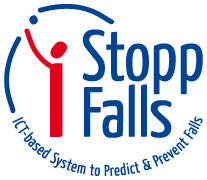iStoppFalls Symposium - How effective is ICT-based Fall Prevention and Risk Assessment?
University of Siegen - Project coordination
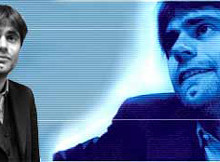
Professor Volker Wulf
Volker Wulf is a professor in Information Systems and the director of the Media Research Institute at the University of Siegen. At Fraunhofer FIT, he heads the research group User-centred Software-Engineering (USE). He is also a founding member of the International Institute for Socio-Informatics (IISI), Bonn. After studying computer science and business administration at the RWTH Aachen and the University of Paris VI., he got a Ph.D. at the University of Dortmund and a habilitation degree at the University of Hamburg, Germany. In 2001, he worked as a research fellow at the Massachusetts Institute of Technology (MIT), Cambridge, MA. In 2006/07 Wulf spent a sabbatical as a Fulbright Scholar at the University of Michigan, Ann Arbor, and at Stanford University, Palo Alto. His research interests lie primarily in the area of Computer Supported Cooperative Work, Knowledge Management, Computer Supported Cooperative Learning, Entertainment Computing, Human Computer Interaction, Participatory Design, and Organizational Computing. He published more than 170 papers. He edited 10 books among which “Expertise Sharing: Beyond Knowledge Management” and “Social Capital and Information Technology” both with MIT Press Cambridge MA and “End User Development” with Springer Dordrecht are probably best known. As a conference co-chair he hosted the Seventh European Conference on Computer Supported Cooperative Work (ECSCW 2001) in Bonn and Communities & Technologies (C&T 2003) in Amsterdam.
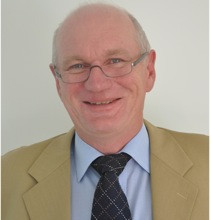
Rainer Wieching (Project Management)
During the last 15 years of his professional career, he has headed a health care SME, being responsible for technical, medical & scientific aspects in global pharma marketing and medical education, especially concerning prescription drugs (cardiovascular, oncology), evidence based medicine (clinical trials, guidelines), and medical technology (ultrasound).
During his studies and PhD thesis, he has worked in the cardiopulmonary data laboratory of the physiology institute at DSHS Cologne and in the exercise testing laboratory of the clinic for pediatrics at a university hospital (RWTH Aachen), being responsible for exercise testing devices, bio-signal computing algorithms, data management and statistical analysis.
Additionally, he disposes of considerable working experience in system analysis, data modeling and programming of multi-process redundant software systems, gained during an 8 year assignment in a software engineering company. He has successfully participated in IT/health related national research projects in Germany (BMBF) and has profound experiences in global health care market related aspects (pharma and medical technology).
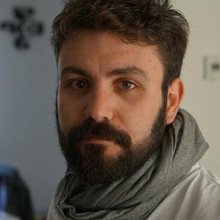
Konstantin Aal
Konstantin is a PhD student and research associate at the chair for Information Systems and New Media at the University of Siegen, Germany. Currently his main research focus is fall prevention with older adults (iStoppFalls) and the usage of Social Media during the Arab Spring (Arabellion). He is also part of the come_IN team, which founded several computer clubs for children and their parents in Germany and the Westbank.
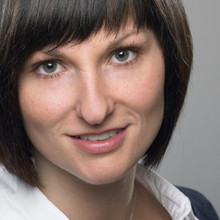
Corinna Ogonowski
Corinna Ogonowski is a PhD student and research associate at the chair for Information Systems and New Media at the University of Siegen, Germany. Her current research is focused on methodological issues on cooperation, learning and design processes within Living Labs, participatory design and empirical studies fostering co-creation processes with users.
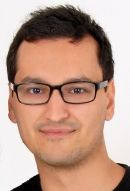
Daryoush Vaziri
Daryoush Vaziri received his Bachelor degree at the University of Applied Science in Bonn-Rhein-Sieg. Afterwards he worked as a process designer for the Telekom Deutschland GmbH. Since 2010 he has been working at the University of Bonn-Rhein-Sieg as a research associate and received his extra occupational Master degree in “Information and Innovation management” in 2013. Since 2014, Daryoush commenced his PhD studies at the University of Siegen and Bonn-Rhein-Sieg. His research interests include: accessibility and usability of Information and Communication Technology, specifically accessible technologies for the fall prevention of visually impaired elderly.
German Sport University Cologne
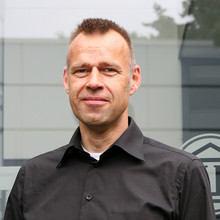
Professor Wiebren Zijlstra
Professor Wiebren Zijlstra is head of the Institute of Movement and Sport Gerontology at the German Sport University Cologne. He graduated in Human Movement Sciences and received a PhD at the Medical Faculty of the University of Groningen, the Netherlands. Until June 2012 he was an associate professor at the University Medical Center Groningen. His research and teaching focus on physical activity and its relationships with physical and cognitive functioning in older people. Special interests include mobility, neuro-mechanical adaptability, and interventions to improve health span. In addition to national Dutch projects, he is, or has been, involved in several EU funded projects. He is author of more than 70 peer reviewed publications, co-editor of European Review of Aging and Physical Activity, member of the editorial board of Gait & Posture, and a regular reviewer for scientific journals and various international research organisations.
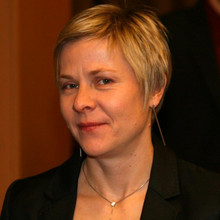
Sabine Eichberg
Dr. Sabine Eichberg is a research assistant at the Institute of Movement and Sport Gerontology at the German Sport University Cologne. Her research focuses on the development of motor and cognitive performance in elderly subjects. Her primary focus is associated between motor and cognitive performance and intervention programs for enhancing motor and cognitive performance. She is a research partner in several studies: the Interdisciplinary Longitudinal Study of Adulthood (ILSE), the study on the influence of physical activity and training on motor and cognitive performance in older people (MoCog), Sarcopenic Obesity: Alterations of metabolic fluxes in muscle tissue of older people suffering from the metabolic syndrome and its modification by physical activity (FLUX), and ICT based System to Predict & Prevent Falls (iStoppFalls).
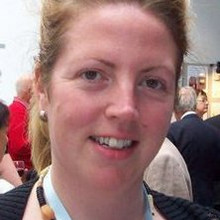
Hannah R. Marston
Dr. Hannah R. Marston completed her PhD “Wii Like to Play Too: Computer gaming habits of older adults” from Teesside University, UK, in 2010. The focus of her PhD was to identify what was important to older adults in regards to computer game content and interaction using the Nintendo Wii and Sony PlayStation 2 consoles. Since completing her PhD, Hannah has worked as a research assistant at the Centre for Innovative Ageing (CIA) at Swansea University, and as a post-doctoral fellow at the HCI Lab at the David R. Cheriton School of Computer Science, University of Waterloo (Canada). Hannah moved back to Europe to undertake a post working on the iStoppFalls in 2011. Hannah’s research interests include: video games, physical space, design, theory, tele-health, gender, rural ageing, gerontology, intergenerational relationships, age cohorts (baby boomers, oldest old (85+), centenarians) and the overall use of technology which can facilitate take-up, enjoyment, learning and rehabilitation.
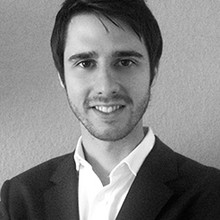
Michael Kroll
After completing his studies in sport science at the Ruhr University Bochum Michael Kroll began to study sport gerontology in the Master’s program at the German Sport University Cologne in 2009. He completed his studies successfully at the end of 2011 and started working on the EU research project “iStoppFalls”. Concurrently this project provides the thesis of his promotion.
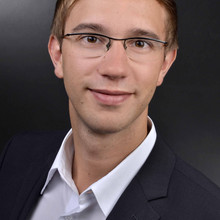
Dennis Fink
Dennis Fink is a research assistant at the Institute of Movement and Sport Gerontology at the German Sport University Cologne (DSHS). Dennis studied at DSHS from 2005 2012, and gained a Diploma Sport Scientist. He also studied Kinesiology at the University of Western Ontario, Canada from 2009 2010. The focus of his Diploma Thesis was to deny the influence of vibration on erythrocyte flexibility in human blood. In 2010, Dennis gained a further qualification “Sport Informatics” and “Sport and Environmental Management” from DSHS. Since completing his studies, Dennis previously worked as a Sport Therapist in a rehabilitation and prevention centrum (Cardiowell) for cardiovascular disease beside his work as research assistant at the DSHS.
Austrian Institute of Technology
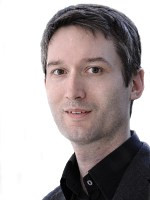
Mario Drobics
Dr. Mario Drobics is the Thematic Coordinator for Active and Assisted Living at AIT Austrian Institute of Technology GmbH. He received his PhD in applied mathematics in 2005 at the Johannes Kepler University Linz in Austria. Since 2007 he has been working at AIT in the Safety & Security Department, where he initiated his research group in 2011. His research focuses on applying ICT for the benefit of older adults in the areas of lifestyle monitoring and health prevention. Currently, he is the technical coordinator of the FP7 project iStoppFalls, board member of AAL-Austria and head of a working-group at OVE-GIT.
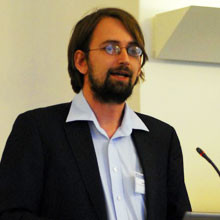
Karl Kreiner
Karl Kreiner received a bachelor degree in software development and economy from University of Technology Graz and a master degree in information management from University of Technology in Vienna. He started his professional career in 1998 working as a software engineer, consultant and project manager in the field of large-scale online media projects. Since 2003 Karl works as researcher and engineer at the Austrian Institute of Technology. Since then he has contributed to more than 30 national and international projects in the field of telehealth, active aging and biomedical research focusing on the design and implementation of knowledge-based systems. Since 2007 Karl is also a guest lecturer at the University for Applied Sciences FH Joanneum in the healthcare engineering programme. In 2011 and 2013 he was a visiting researcher at National ICT Australia in Canberra, Australia.
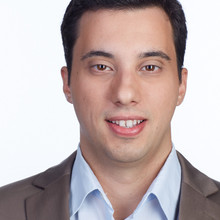
Andreas Ejupi
Andreas Ejupi is a PhD candidate was born in Vienna, Austria. He holds a Bachelor in Business Informatics, a Master in Medical Informatics from the Vienna University of Technology and a MBA degree. Currently he is working on his PhD at the Austrian Institute of Technology. He is interested in initiatives and research related to the future of medicine and healthcare. He focuses on assistive technologies, especially on solutions for older people and people with (chronic) diseases. In particular, he is working on fall detection, prevention and prediction solutions.
Instituto de Biomecanica de Valencia
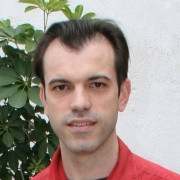
Helios de Rosario
Industrial Engineering and Senior Researcher in the Institute of Biomechanics of Valencia, specialized in Human Movement Analysis, Biomechanical Models and Ergonomics. His work is focused on the development and application of advanced techniques for the measure and analysis of biomechanical data, especially for joint kinematics, and also psycho-physiological variables. He has been involved in National and European projects about the development of mathematical models of human joints, biomechanics and ergonomics for older adults, and physical and cognitive ergonomics in vehicles.
Philips Research Eindhoven
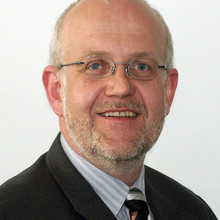
Heribert Baldus
Dr. Heribert Baldus holds a PhD in electrical engineering, and is principal scientist at Philips Research Europe, Eindhoven. His main areas of work are unobtrusive sensor systems and communication systems, especially applied in personal healthcare and independent aging. He has led various internal and international research projects on different areas of communication technology, home-networking and wireless medical systems. He has various publications in peer reviewed scientific journals, is co-author of several books on communication technology and their (medical) application, and holds more than 50 patents and patent applications.
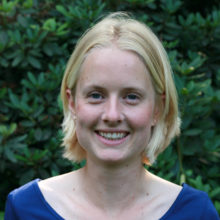
Janneke Annegarn
Dr. Janneke Annegarn is a research scientist at Philips Research Europe, Eindhoven. After she became a physical therapist in 2005 she started a one year master’s program at the Faculty of Health, Medicine and Life Sciences of the Maastricht University, NL. She obtained her master’s degree in Human Movement Science in 2006 for which she received the Catharina Pijls award for best thesis of the faculty.
After working as a research assistant for 1 year at the Human Movement Sciences (Maastricht University), Janneke started her PhD project entitled “Daily activity monitoring in patients with COPD” at the same department in September 2007 and obtained her doctorate degree in November 2012. Since October 2011 Janneke joined the group of personal Health Solutions at Philips Research where she works on the topic of fall risk assessment and fall prevention. From the start she joined the iStoppFalls consortium.
Kaasa Solution GmbH Düsseldorf
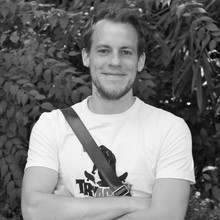
Stefan Jahnke
Stefan Jahnke is a PhD student for communication science and a visiting lecturer at Westfälische Wilhelms-Unversität Münster. After completing a Masters degree in communication, psychology and German philology in 2007 he worked as a copywriter for advertising agencies in Düsseldorf. In 2011 Stefan joined Kaasa solution and the iStoppFalls consortium. As a conceptualist and project manager he works on topics associated to lifestyle wearables, health tracking and mobile gaming.
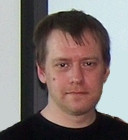
Arno Wienholtz
Arno completed his Master degree in descrete mathematics from the Louis Pasteur University in Strasbourg. In 2000, Arno joined Spellbound Entertainment (games company) based in Offenburg, Germany, where he was a computer games programmer (C++) and later became, lead programmer. Arno contributed to 8 released titles for PC and Xbox 360 such as the "Desperados" series or "Arcania", focusing mainly on game play systems like pathfinding, physics and animation control. In 2012, Arno was hired by Kaasa (games company) based in Dusseldorf, Germany. Since joining Kaasa, he has being working on the iStoppFalls project where he has been the lead programmer for the exergames and technical components in addition to the development of the background components enabling communication between the different technologies implemented into the iStoppFalls system.
Neuroscience Research Australia
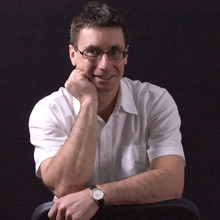
Professor Stephen Lord
Professor Stephen Lord is a Senior Principal Research Fellow at Neuroscience Research Australia, Sydney, Australia. He has published over 300 papers in the areas of applied physiology, instability, falls and fractures in older people and is acknowledged as a leading international researcher in his field. His research follows two main themes: the identification of physiological risk factors for falls and the development and evaluation of falls prevention strategies. His current projects include studies addressing fall risk in clinical groups at high risk of falls including people with dizziness, multiple sclerosis, Parkinson’s disease and dementia and evaluating the roles of new technologies in fall risk assessment and fall prevention.
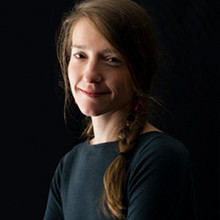
Kim Delbaere
Dr. Kim Delbaere is a Research Fellow at Neuroscience Research Australia supported by the Australian National Health and Medical Research Council and a senior lecturer at University of New South Wales, Sydney. She is a leading international researcher in the area of falls in older people. Her research has enhanced the understanding interrelationships between falls and various physiological, psychological and cognitive factors. Dr Kim Delbaere, originally trained as a physiotherapist, has merged her passion for the physical body with technology and envisions a future where older adults can stay independent for longer using recent technological advances.
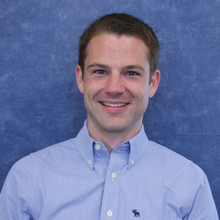
Yves J. Gschwind
Dr. Yves Gschwind is a Visiting Research Officer at Neuroscience Research Australia holding a grant from the Margarete and Walter Lichtenstein Foundation. His research focuses on enhancing physical and cognitive performance by conducting exercise, drug/supplement and fall prevention trials in older people and patients. He worked as a research fellow at the Department of Geriatrics at the University Hospital Basel and the University Center for Medicine of Aging in Basel, Switzerland. Since 2013 he is working on the international FP7 research project 'iStoppFalls - an ICT-based system to predict and prevent falls'.
